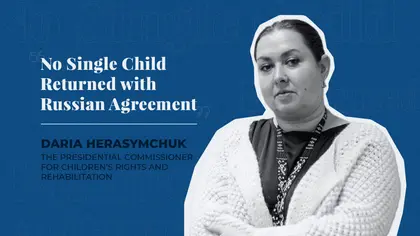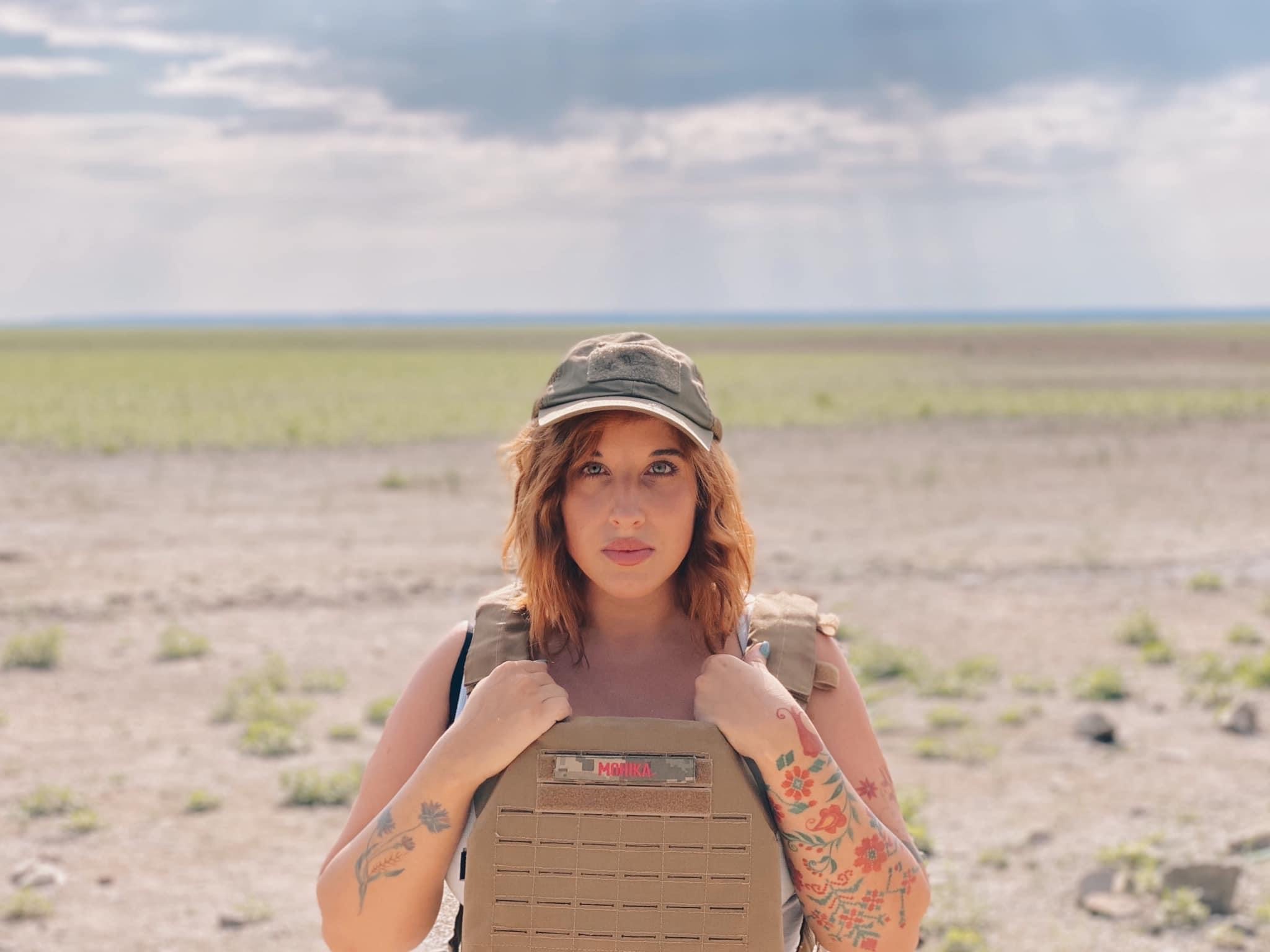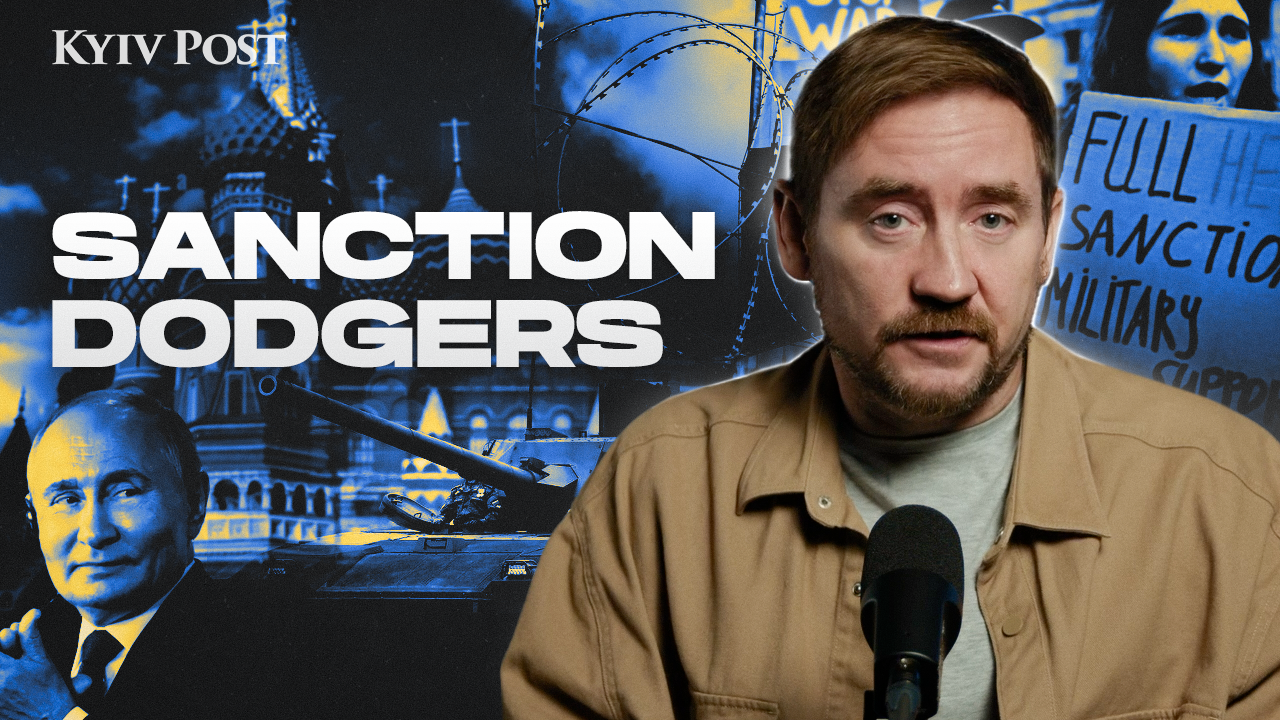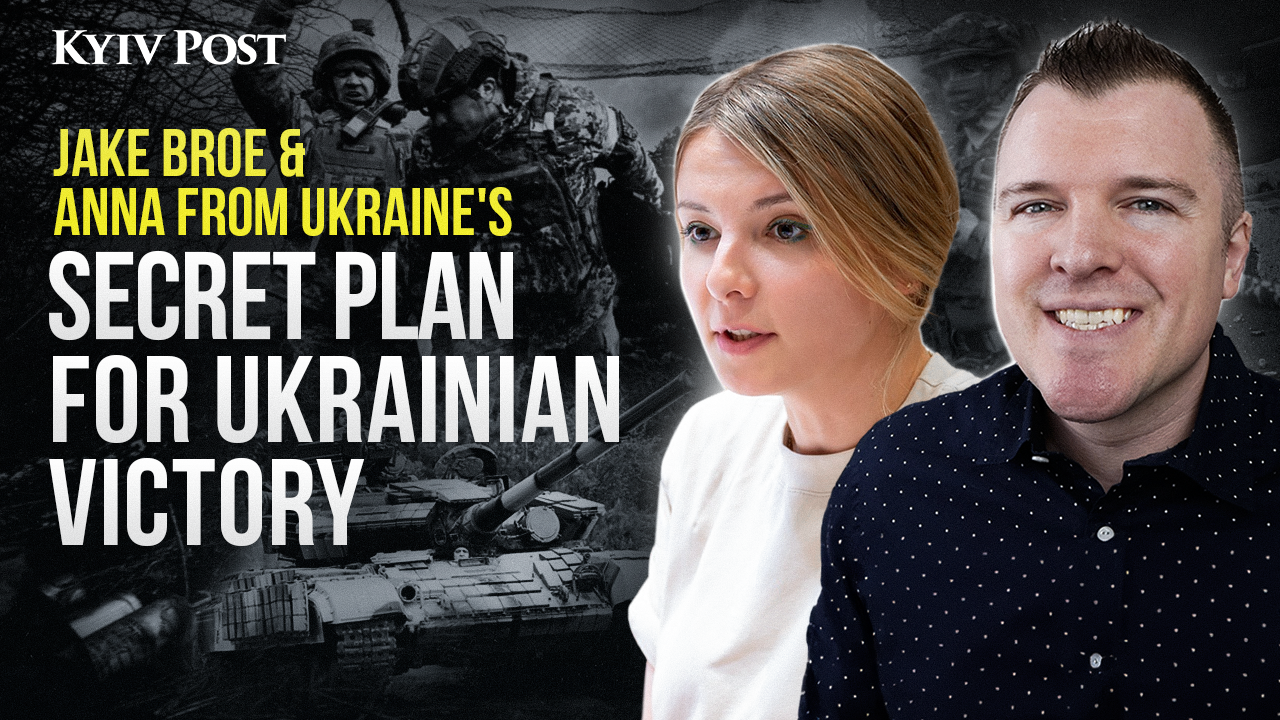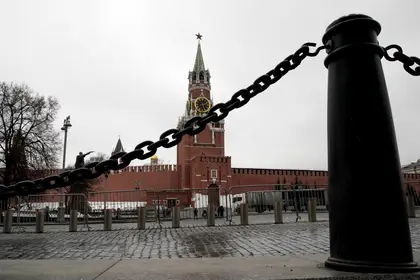In an exclusive interview with Kyiv Post, Ukraine’s Presidential Commissioner for Children’s Rights and Rehabilitation, has said Russia still has no intention of returning hundreds of thousands of Ukrainian children, despite the ICC issuing Vladimir Putin with an arrest warrant for overseeing their deportation to Russia.
Although Daria Herasymchuk said she was happy with the ICC’s decision, she stressed there was much work to be done.
JOIN US ON TELEGRAM
Follow our coverage of the war on the @Kyivpost_official.
Putin was recognized as an international criminal who purposefully deports children from the Russian-occupied territories of Ukraine earlier this month, alongside Maria Lvova-Belova, the Russian presidential commissioner for children’s rights.
In this interview with Kyiv Post, Herasymchuk discusses the path ahead and how difficult it is to return children home.
What were your first emotions when you learned about the decision of the ICC?
Even now, I cannot help but smile. I understand that this is only the first step but it is a historic one. First, it is an admission that from the very beginning Ukraine was telling the truth about the planned actions of the Russians [regarding the deportation of children], that they had planned to do this to our children before the occupation of Ukrainian territories. All their actions show that they had no intention of returning them.
To do this, they quickly simplified the procedure for adoption and the granting of Russian citizenship as well as inventing the so-called free education for Ukrainian children. This proves that they had intend to keep these children in the Russian Federation. This allows us to legally define their actions as deportation and forced displacement, rather than evacuation, as they claimed.
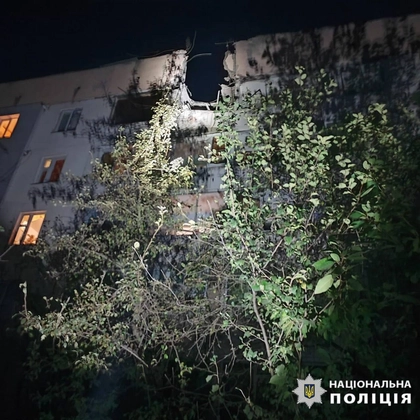
Kyiv Hit by Massive Drone Attack as Russian Strikes Target Multiple Ukrainian Cities
The ICC’s ruling that the deportation and forced displacement of children is a war crime, provides us with the first step towards the very difficult, but necessary, process of recognizing Russia’s actions as genocide against the Ukrainian people. That is why this is such an extraordinary event.
A large government team, including ministries and departments, is working on documenting Russia’s crimes. They work together within the framework of the Coordination Council for the Protection and Safety of Children, created by President Zelenskyy and led by Andriy Yermak [Head of the President's Office], for which I am a coordinator.
Meanwhile, the Russian representative in the UN Security Council, Vasily Nebenzya, stated that they were ready to return children to Ukraine when it is safe here. Does this now show that they have recognized the fact that they abducted Ukrainian children?
It is very good that they are ready to return Ukrainian children because the first and most important goal of our work is to search for, find and return our children. Therefore, if they want to return our children, we would be very happy. Our second goal is to bring Russia to justice.
Fifteen children returned home from Russia on Mar.21. Did the ICC decision contribute to this?
Let's make it clear. Not a single child returned with agreement from the Russian side. These 323 children [a figure announced at the time of recording the interview, as at Mar. 28, some 327 children have been returned] are those who were returned during separate operations to save a child or a small group of children. These are all individual cases.
Russia did not propose the return of the children. If the child has parents, they have to go to Russia. The Ukrainian state or public organizations, which now support the state, help the family get relevant documents, plan a route and take the child if, of course, the Russians let him/her go.
Are there organizations from the Russian side that help these parents plan a route to avoid problems?
No. I repeat once again that the large government team engaged in this process is only supported by Ukrainian public organizations, which help to do all this for the family or other representatives of the child. If there are none, then other processes are necessary.
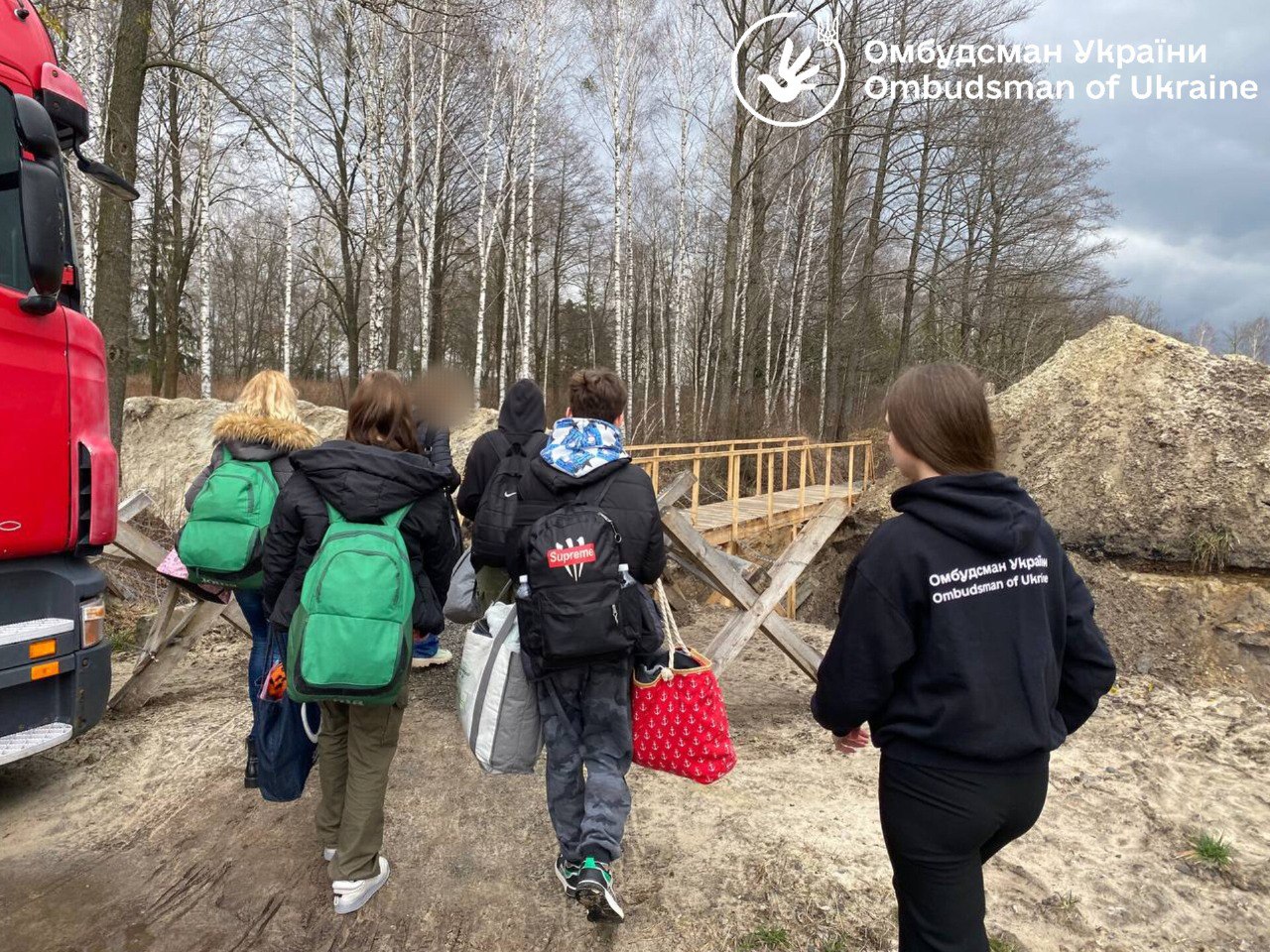 Children who were returned to Ukraine.
Children who were returned to Ukraine.
What are these processes? Can you tell us about them in detail?
We cannot disclose information about any processes at all because we are talking about hundreds of thousands of abducted children who must be returned. If we now discuss the route we would take with you, then next time it could be blocked.
That is why, for the safety of our children, we strongly ask journalists to approach this issue carefully. We ask you not to communicate with and ask the parents questions because, being so happy, they are often ready to tell everything about how their child was saved. It is very important because although their child has returned, saying too much can prevent the release of other children.
How many Ukrainian children are kept in Russia?
The latest data can be found on the state information platform “Children of War”. This is updated every morning at 08:00 a.m. Today we definitely know of 16,207 deported children. This is a detailed list of kids compiled from the applications of parents, relatives, local authorities or witnesses concerning deportation or forced relocation of a child.
From the very beginning Ukraine was telling the truth about the planned actions of the Russians [regarding the deportation of children], that they had planned to do this to our children before the occupation of Ukrainian territories.
We know that this is not the final figure and believe as many as several hundred thousand children have been abducted. We don’t yet fully understand what has happened to all the children from the significant areas of Ukraine that still occupied.
The Russian authorities allege that they have evacuated more than 700,000 Ukrainian children. We can’t confirm this figure as they have provided no lists and no data on how and whom they have counted. In addition, our calculations do not show such a large number of children in the occupied territories.
Why do they overestimate this figure?
We understand how Russian propaganda works. Most likely, this is intimidation and a desire to demonstrate their power.
What crimes against Ukrainian children are committed in the territory of the Russian Federation?
Many crimes are committed, including serious psychological violence because they are banned from doing and mentioning anything Ukrainian. They are not allowed to speak Ukrainian, mention Ukraine or their relatives. They are forced to learn the history of the Russian Federation, their culture, language, to sing their national anthem. They are punished for refusing to sing the Russian anthem and are not allowed to go for a walk.
Furthermore, we know Russia is sending children to Russian foster families, which is absolutely illegal and also a crime. The documents of some children have been forged to show they are Russian.
How is the process of deportation of children going? We know that many children were allegedly sent to recovery camps. What were other ways?
We have two terms - deportation and forced displacement. Deportation is taking a child to the territory of the Russian Federation. Forced displacement is the forcible taking of a child to the temporarily occupied territories of Ukraine. These are crimes. The stories of returned children have allowed us to analyze the actions of the occupiers in relation to Ukrainian children.
First of all, it should be understood that the Russians do not act chaotically, they plan their actions. They started implementing this plan after the annexation of Crimea in 2014 with the so-called Train of Hope, by which Russians illegal adopted Ukrainian children in the annexed Crimea.
Our analysis shows they are using at least five child abduction scenarios:
- The Russians create unsafe conditions for children in the occupied territory and then offer their parents to (supposedly) voluntarily send the child to a Russian camp for their safety. Why do I say supposedly voluntarily? Because, firstly, conditions are created that either the child will die or the parents will give him/her up. Many parents were also threatened that if they did not sign this consent, the child would be taken, they would lose their parental rights and never see the child again. As a result, they agreed. This is one of the most frequent scenarios.
Why is it called deportation or forced displacement? Because these children were not returned. After a month, as was tentatively agreed with the parents, the children were moved from one camp to another where they were detained for a long time. The children did not get back. Some of those who returned had been in the camp for a year. The situation is very complicated, that is why we say that this is a method for abducting children.
It is very difficult to find children because the Russians hide them: they settle them all over the territory of Russia, constantly move them, take mobile phones, do not allow them to contact their parents.
- The Russians separate children from their parents during the so-called filtration procedures, when they tried to leave, for example, for the territory controlled by Ukraine or move through the occupied territory and got to a Russian roadblock. The parents were detained for unknown reasons and the child was taken. They told the children that their parents no longer needed them. Imagine, just a few hours ago, the parents were with their child and everything was fine, and now the child is told that she/he is not needed and will go to a Russian family.
There are, let's say, happy stories when parents managed to get out of the filtration camp and took their children from Russia. Unfortunately, there are such cases as the story of 12-year-old Sashka, from Mariupol, who was separated from his mother during filtration procedures a year ago. We still do not know her whereabouts. We hope she is alive and we will be able to get her back. Sashka was reunited with his grandmother and is in Ukraine now. You can read his story on the Children of War portal. His testimony and those of other children were used at the International Criminal Court.
- The Russians first kill parents and then abduct the child. There was such a situation with the first two children we got back - Kira and Illia from Mariupol. First, their parents were killed in front of their eyes and then they were abducted.
- The Russians take children from institutional care facilities being under occupation. We are talking about all institutional care facilities, including shelters, orphanages, and children's homes. Russia refused to establish humanitarian corridors with us, so that we could take these children to the territory controlled by Ukraine.
- They take children from their biological parents, depriving them of parental rights, usually from parents who do not want to collaborate with the occupation authorities. For example, 16-year-old Serhiy was taken from his older siblings, who were taking care of him and sent to Russia where he spent eight months with a foster family.
As for taking children from boarding schools, how many of them are still in Russia?
Today, we can only talk about those institutional care facilities that were on the territory controlled by Ukraine until Feb. 24. We definitely know that children were abducted from at least four institutions. We managed to return children from two facilities, while we are still looking for children from the other two in Kherson region.
After the liberation of any territory, new terrible data and figures regarding war victims among children are revealed and they are growing rapidly. For example, remember the Kherson torture room, where 14-year-old Vitalik was kept. We are gathering fresh information about the abduction of children from these areas.
Let's talk about the adoption process in Russia. Ukrainian children are given Russian citizenship. Do the Russians change their names?
If it concerns illegal adoption – yes. They can change children's citizenship, their name, surname, even their age. The Russians signed the UN Convention on the Rights of the Child, which clearly states that the signatory country undertakes to obtain consent from the child's homeland when carrying out the adoption procedure. The Russians have neither received nor asked for any consent from Ukraine. Accordingly, this procedure is 100 percent illegal.
We returned Serhiy, who was brought to the temporarily occupied territory by the Russians after being taken from his older brothers and sisters; he had lost his parents before the full-scale invasion. The Russian procedure is as follows: they move the child to the occupied Donetsk region as a transshipment base where they are then gathered into groups or individually sent to Russia.
Serhiy had been in Donetsk for several weeks, while 15 or so other children of different ages were gathered., then they were and sent to Russia. There they met with Maria Lvova-Belova, who told the children they had been saved and now they would be fine. Serhiy told her that he did not want to stay there, that he had a family in Ukraine and wanted to go home. She answered that he would stay here for a while and then go back. However, Serhiy was sent to a boarding school near Moscow. He stayed there for several weeks before being forcibly sent to a foster family, where he stayed for 8 months until we managed to return him.
The Russian authorities allege that they have evacuated more than 700,000 Ukrainian children. We can’t confirm this figure.
Serhiy told us that the family was afraid of him, closed the door to the bedroom at night. He realized that he could save himself only by playing along so there would be less attention on him.
Serhiy said that the Ukrainian kids had been given new mobile phones but he suspected that the phones had trackers on them and all calls were listened to. However, he found another way to connect with Ukraine to tell where he was.
Maria Lvova-Belova claims to have adopted a 15-year-old boy from Mariupol. Did you manage to find out who this boy was?
We have not so far. We do not understand whether he is really from Mariupol or even 15 years old. At first, she said she had taken him into care, later at a meeting with Putin she said she had adopted him. Therefore, we are not sure that she voiced the real name and age of the boy.
Do international partners help us return children? Are they somehow involved in this process?
We are trying to involve everyone we can - the structures of the European Union, the United Nations, other countries. However, as of today, all the children were returned through our own efforts. We are doing everything possible to make additional mechanisms work.
It is very difficult to find children because the Russians hide them: they settle them all over the territory of Russia, constantly move them, take mobile phones, do not allow them to contact their parents. This is very serious. There are cases when we manage to get a child back, and she/he says that there were five more children there, but did not have phones, could not call anyone but gave their information on small pieces of paper.
You can also highlight the text and press Ctrl + Enter


